Let’s Listen Then In Conversation with Shabnam Virmani
Article By Manjula Nanavati
Shabnam Virmani is the founder of the Kabir Project, which consists of a series of ongoing journeys inquiring into the spiritual, cultural, and socio-political resonances of the 15th century mystic and poet Kabir. Housed at the Srishti Institute of Art, Design and Technology (Bengaluru), the Kabir Project team has worked with this music and poetry to create films, audio CDs and translated books, through which the project explores ideas of identity, religion, secularism, impermanence and spirituality in the voices of Kabir and other Bhakti, Sufi and Baul poets. Their body of work, shared through festivals, workshops, yatras, and student labs, continues to be a source of inspiration to seekers, scholars, activists, artists, and teachers who have been woven together through these exchanges. In conversation with The Acropolitan, Shabnam shares her personal odyssey, which has been demanding in many ways but also joyful and deeply transformative.
THE ACROPOLITAN: Shabnam, how did you come to Kabir?
SHABNAM: I was living in Ahmedabad as an activist filmmaker when the riots happened in 2002. My own upbringing had not given me an insight into any spiritual tradition, and the realm of faith was something I didn’t understand at all. So I was horrified by the almost gleeful participation in the hatred and violence that was unfolding around me. I began reading Kabir because he speaks so clearly about the folly of religious divides, and as a filmmaker I started journeying through different parts of India and to a smaller extent Pakistan enquiring into the contemporary meanings of Kabir’s poetry.
I began by thinking of my role as mostly that of a social commentator. There was a feeling that I was not implicated in the process, and that I was mostly a medium to bring a message to people out there. But that changed very quickly. Kabir began to speak to me in ways I had not anticipated, and I began to question myself. How do I define myself? What are the boundaries of my ego? How porous or rigid are my beliefs? Who is Ram in Kabir’s poetry? And if he is a nirgun poet, who talks about a formless divine and says I’m neither Hindu nor Muslim, then why is he speaking about Ram? The kind of answers that started getting unearthed began to affect me very deeply, in some ways destabilizing my sense of self and turning me inside out, one might say!
THE ACROPOLITAN : Have you discovered what the violence that triggered your voyage really is? What is the source of violence?
SHABNAM: There is amongst all of us as human beings this incredible need for form, for names, for an identity. We try to secure for ourselves a structure, a social space, a ritual. But to also be able to step out of these forms and view them with a sense of humour and non-belonging is what Kabir is asking us to do all the time. Of course we can enjoy and inhabit form – ultimately even our body is a form and it is all we have with which to interact with life – but Kabir asks us to not let these forms define us entirely.
He takes you to a place where you see a vaster sense of self, beyond a narrow identification with form. If you are able to identify with the formless source from which multiple forms arise, then you are able to celebrate plurality by saying, “This is my form, and that is yours.” But if you cling to one form as the only truth then that becomes a source of violence.
There is a beautiful Buddhist parable about Mara and his companion. As they walk down a path one day, they pass a man sitting on the side of the road with a beatific smile on his face. The companion asks Mara, “Who is that?”
“That’s someone who has just found the Truth,” Mara replies.
“Oh, but then aren’t you concerned?” counters the companion.
Mara smiles dismissively and says, “Not at all, because I know that he’ll soon make a belief out of it.”
This captures the slippage between being in the presence of a real experience that is actually beyond names, and making it into a structure with a title, a definition, forming a club or a sect around it, getting your identity all tangled up with it, then protecting it and defending it from others. You begin to identify with the form so strongly that you forget what it was intended to channel.
Kabir challenges us to let go of both had and anhad. You might ask, “I can understand going beyond had – form and boundaries – but what does it mean to also give up anhad – the limitless?” I think Kabir is asking us to never rest in any one place, but to continue to move, and to recognize life as an endless dance between had and anhad, the limited and the limitless, between form and emptiness, as it were.
THE ACROPOLITAN: Beyond the historical figure, of whom we know very little, who really is Kabir, the philosopher? Who is Kabir, the guru?
SHABNAM: Many village people and folk-singers I’ve encountered see Kabir as a powerful guide, a friend, a co-traveler, another human being who grappled with many of the same issues and experiences that they are grappling with. “I am Kabir,” they often say, because they recognize in Kabir a spirit they see in themselves. Once his poetry begins to resonate within your inner being he becomes a guide or guru to help you unlock that spirit. In that sense he becomes so much more than a historical figure, he becomes a moving, evolving philosophy that people participate in.
References to the guru in Kabir’s poems come in all shades. Many of them allude to the guru in human form, who is revered, who is being welcomed, who is “arriving in our courtyard”. But one could also interpret these poems to mean that “wisdom is arriving into our body”. Because so many Kabir poems say that the guru is within you, that he is everywhere. He is an impulse within you that you must become aware of, and learn from. That will lead you from darkness to light. Kabir speaks of a creative solitude where real questions get asked of yourself, by yourself, and the answers arise within yourself. He says that a true seeker walks alone.
Laalan ki nahin boriyaan, hansan ke nahin paat
Sinhan ke nahin lehede, saadhu na chale jamaat
Rubies aren’t found in sackfuls
Swans don’t fly in flocks
Lions don’t roam in herds
And seekers aren’t found in crowds
However, sometimes in the course of your journey you may come face to face with a powerful relationship, as happened to me with Prahlad Tipanyaji. In these moments someone else becomes a powerful vehicle for transmitting wisdom to you. And for a very intense period of 6-7 years he played that role of a guru in my life. I was full of questions and he was able to share his insights because he had next to him a receptive and hungry seeker.
THE ACROPOLITAN: How is it that Kabir has been so wholly embraced by so many divergent cultures?
SHABNAM: No other poet that I know of in our country has as much breadth and diversity as Kabir. Within 3-4 months of travel I had already confronted multiple Kabirs and the incredible diversity of his poetry that eludes grasp yet allows him to inhabit opposing cultures. Upper class Hindus, Dalits, Brahmin scholars, Sufi singers, Sikhs, deeply pious religious people and atheist social activists all find in Kabir an authentic voice that speaks to them. Perhaps this is because he is constantly demolishing our notions of ourselves as he pushes us across our carefully constructed boundaries and forces us to realize the futility of social divisions. So it seemed natural and illustrative that all the films in the Kabir Project journey across a boundary, both physically and in the realms of knowledge, thought and experience.
Had Anhad: Journeys with Ram & Kabir probes the divides created by religion. Koi Sunta Hai delves into the boundaries we create in art and music. Chalo Hamara Des explores cross-cultural divides, and Kabir Khada Bazaar Mein examines the opposing pulls of the individual vs. the collective, autonomy vs. belonging, the spiritual vs. the social.
The core inspiration of each film is the power of the song and the series of festivals that unfold around their screenings and live music concerts are a conscientious effort in the spirit of Kabir towards blurring those boundaries.
THE ACROPOLITAN: How has Kabir changed you?
SHABNAM: In so many ways! But one thing I could say is that I have learnt not to be superior as a supposedly secular-minded or spiritual-leaning person. I do not want to presume that I am in a more evolved state than so many religious people who go to the temple or masjid, because that is a world I do not know. Perhaps structured religion and ritual brings order to their lives, and discipline to their practice and they experience things through those forms in ways you and I can never know. So what I delight in now is that I am in no hurry or need to define myself. Earlier I had strong viewpoints. I was a staunch feminist, a leftist with strong views about society and right vs. wrong. But now there is openness in not passing judgments, especially on experiences that I have not been privy to.
And finally of course, all of Kabir’s poetry is an invitation to interrogate yourself sharply, daily, to understand yourself deeply. It makes you aware of your grasping mind, always propelling you towards more and more desires, things, possessions, fame and even knowledge, as futile ways of feeling secure. It has changed my awareness of my self, and at a very micro level, it affects choices I make every day.
THE ACROPOLITAN: What is your advice on how to engage with Kabir, to a treadmill generation who must make a success of everything they do?
SHABNAM: Well, if you are only in it to become a famous Sufi singer, or write clever scholarly books, you have really missed the point of this wisdom altogether. If you are only in it to set up shop as a gateway to this tradition and benefit from it, it makes you no different from the pandit that Kabir castigates in his poetry. But if you allow yourself to become vulnerable to the poems, if you allow them to implicate you, then you’re going somewhere. And the irony is that after all your seeking high and low you will find the answers already there, within you. But even though it is within you, there is enormous effort and tremendous work involved in arriving where you already are.
THE ACROPOLITAN: Is Kabir a necessity for today?
SHABNAM: Yes. Kabir even in his own times was impelled by a sense of urgency or necessity. He had a strong urge to communicate his insights, his inspirations. “Suno bhai sadho,” he called out, “Listen, oh seekers!” In one song he likens the truth or wisdom to a healing herb. “Come, everybody, take from it, and share it. The more you share, the more there is.”
So taking the cue from him, I would say that this knowledge stream should not be dammed, through orthodoxy, fundamentalism, punditry, borders, copyrights, or whatever! It is flowing for several hundreds of years and we are inspired to drink from it, and to share it further, as widely as possible. There are so many voices in this stream. Kabir is only one among them. Let’s listen then, to these Sufis, bhaktas and Bauls. They tell us many wondrous things. They encourage us to connect with our non-selves, to avoid self-righteousness. They can put us on the path to harmonious living, with our selves and with each other.
Image Credits: Images Courtesy Shabnam Virmani
The entity posting this article assumes the responsibility that images used in this article have the requisite permissionsImage References
Image : Hari Adivarekar Courtesy Shabnam Virmani Talking poetry with singer Mukhtiyar Ali, Pugal village Image & Artwork: Smriti Chanchani
Read the original article on http://acropolis.org.in/2015/07/12/the-acropolitan-jul-sep-2015/
Permissions required for the publishing of this article have been obtained
Article References
Currently the Kabir Project team is engaged in creating a vast web duniya – Ajab Shahar – a wondrous city of songs and conversations drawn from the oral traditions of Bhakti, Sufi and Baul poetry and music. Initial uploads can be browsed on YouTube: www.youtube.com/user/Kabirproject . The full site will go live later this year (2015).
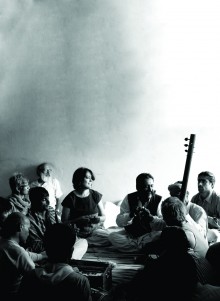
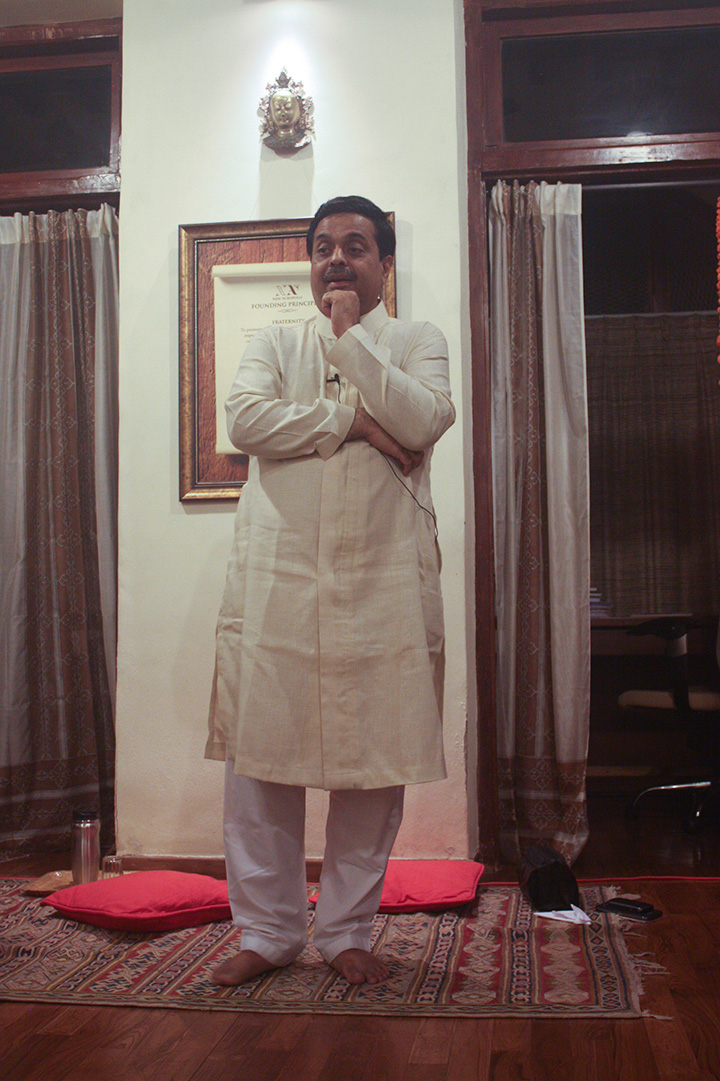
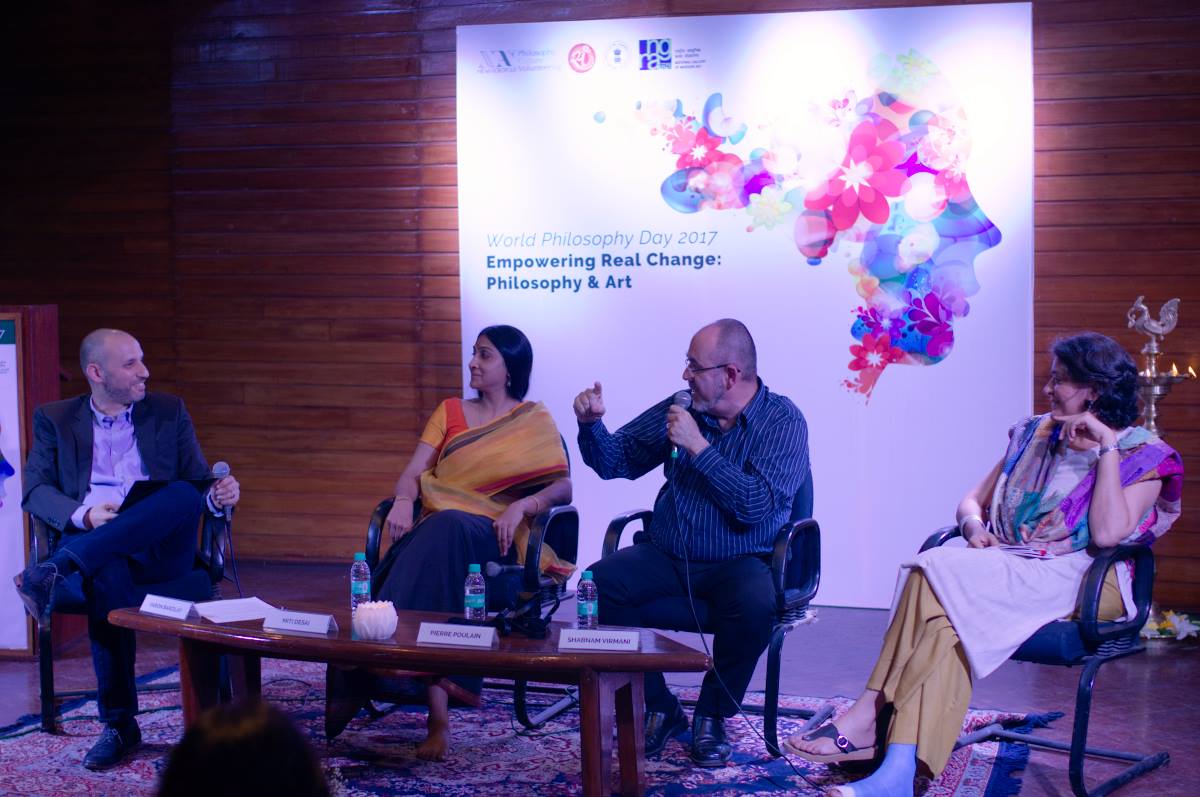
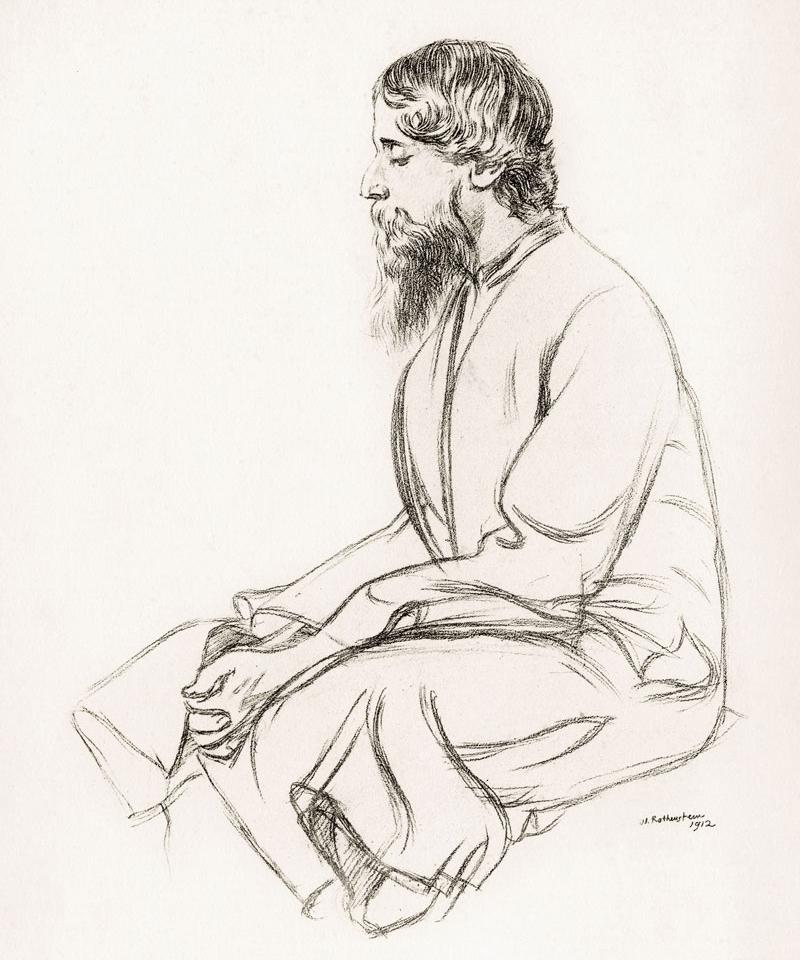
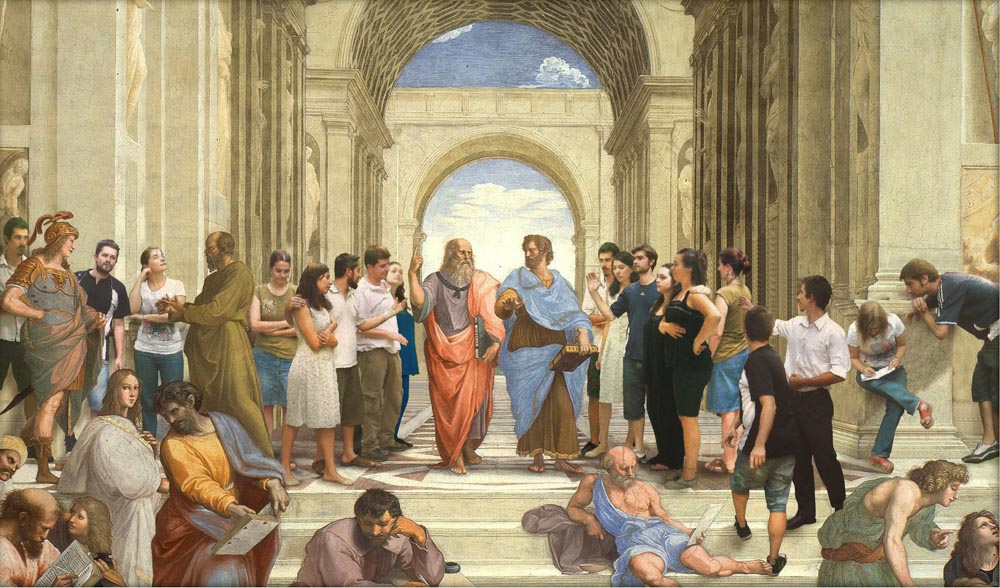
What do you think?